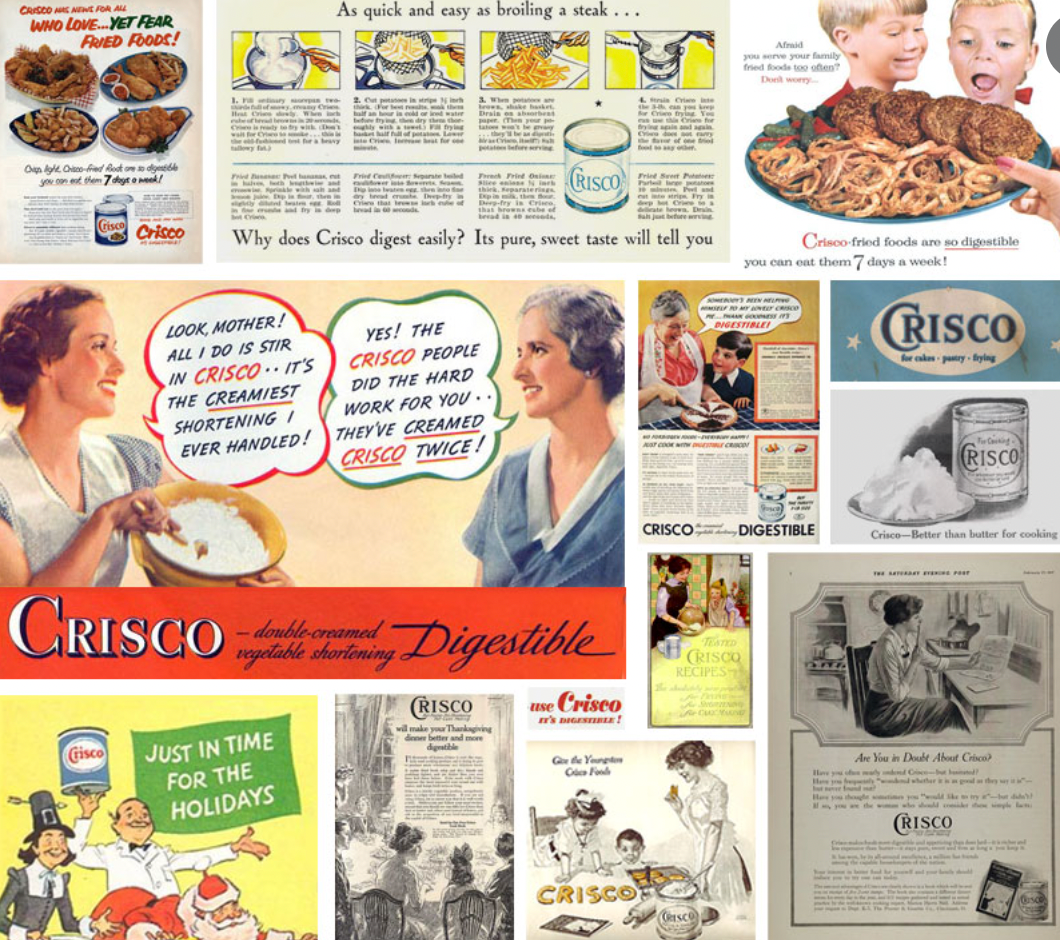Here’s the little-known origin of the vegetable seed oil industry in case you’re out of the loop.
What once was “toxic waste” now is a staple of our diets. Aka, you probably still eat this. Wait, but vegetables are healthy so the same goes with their oils, right? That’s what I thought too. But boy was I wrong.
(Note: you might be frustrated when you first learn this, but you’ll be glad you did.)
The 1870s depression led to a partnership that would change the world. William Procter left England with his candle business. James Gamble left Ireland to start making soap. And the two just so happened to marry sisters in Cincinnati — and started a soap and candle-manufacturing company, Procter & Gamble.
Back then, animal fats sold like crack. They’d break down pigs on the slaughterhouse disassembly line. (Which later was reverse-engineered by Henry Ford to make cars on the assembly line).
But soon these animal fats (key ingredient in soap) got expensive. In search of lower-cost alternatives for their business, P&G got creative.
Enter cottonseed oil.
At the time, cottonseed oil was deemed “toxic waste” after it was displaced by regular oil as a fuel source. But not for long.
Enterprising P&G saw a lucrative opportunity to use unwanted (read: literal trash) cottonseed oil to make cheaper soap and eventually cooking oil. Soon enough, they chemically altered it into cooking fat resembling lard. They called it “Crisco” (they thought it combined: crispness, freshness, and cleanliness). Yum? Not quite.
After some clever marketing hacks, it quickly became a staple of the American diet. Popular Science article from the era summed up the evolution of cottonseed: “What was garbage in 1860 was fertilizer in 1870, cattle feed in 1880, and table food in 1890.” Let that sink in for a second.

P&G bought patent rights and started mass-producing the new cottonseed oil formula (known today as hydrogenated vegetable oil). Selling to home cooks as a replacement for animal fats.
But they still needed to create more demand. So they hired America’s first full-service ad agency, J. Walter Thomson Agency. And started OG growth hacking.
No company had ever put as much advertising dollars behind a product. They ran eight marketing strategies staffed by real artists and pro writers.
They flooded Americans with free samples — mailing to grocers, restaurants, nutritionists. They fried doughnuts in Crisco and passed them out in the streets.
Sales boomed.

They put Crisco in every cookbook recipe…then gave out the cookbooks for free.

Unprecedented, the rollout sold 2 million pounds of Crisco in 1912 (just one year after invention). Then 60 million pounds in 1916. And it didn’t slow down.
Btw, Crisco was 50% trans fat. Estimates say for every 2% increase of trans fat increases the risk of heart disease by 23%. Umm, no thanks.
While they since have altered the formula. The premise remains: Seed oils contain fatty acids found to directly lead to inflammation and chronic diseases. Since the invention of Crisco, vegetable oil went from 0% to now 32% of the American diet. Marking one of the single greatest changes to our nutrition in history.
Okay got it, they’re not so healthy. So what do I look for?
Glad you asked. Seed oils are commonly found in processed foods. They even show up in seemingly healthy options like salad dressings and hummus (ah not my hummus!). Start peeping nutrition labels and you’ll see they’re in everything.
Dr. Cate Shanahan is a leading authority in nutrition and created the PRO Nutrition program for the LA Lakers and many other pro athletes. She lays out the difference between good and bad fats. And the “hateful 8” seed oils to avoid at all costs.

Olive oil, coconut oil, and avocado oil are a few of the cleaner alternatives.
(*exhale sigh of relief seeing olive oil on good list*)
Not to detract from a few young, hungry entrepreneurs (and clever growth hacks)… But health and wellness trump all. As Albert Einstein said, “what is right is not always popular and what is popular is not always right.”
Stay healthy friends.
Curious to learn more?
Check out the first 10 minutes of this video.
